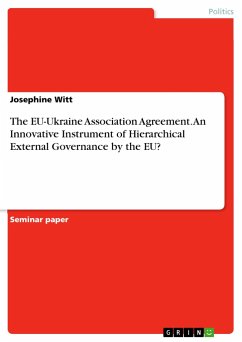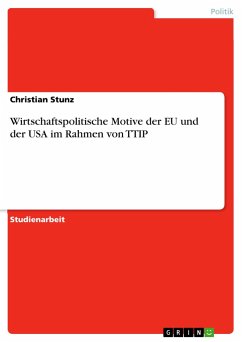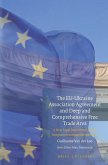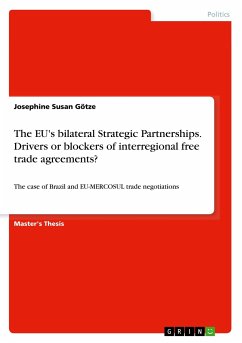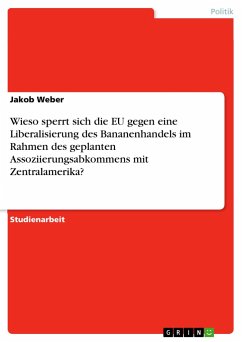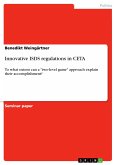Seminar paper from the year 2015 in the subject Politics - International Politics - Topic: European Union, grade: 1,3, Dresden Technical University (Zentrum für Internationale Studien), course: External Relations of the European Union, language: English, abstract: This paper argues that the Association Agreement (AA) between the EU and the Ukraine that includes the establishment of a Deep and Comprehensive Free Trade Area (DCFTA) is a prominent example of EU External Governance as it is an unprecedented, innovative legal instrument that will lead to the adoption of a large part of EU laws into Ukrainian national law. The paper hypothesised that the mode of this External Governance relation is rather hierarchical than network- or market-based. The AA with Ukraine served as a template for similar agreements with Moldova and Georgia and replaces the outdated Partnership and Cooperation Agreements (PCA) with these countries. It recently shifted into the focus of the public in the light of the dramatic events in the Ukraine, starting with the unexpected refusal to sign the Agreement by Ukraine´s former President Yanukovych in the late 2013. As such alone, it attracts the interest of scholars of International Relations and European Foreign Policy already. Furthermore, it is of significance to the EU itself. Former President of the European Council Van Rompuy had called it "the most advanced agreement of its kind ever negotiated by the European Union". Therefore, analysing this Agreement more in detail is crucial to understanding new EU external policies towards its neighbours. After an explanatory introduction to the notion of External Governance as a theoretical basis, the paper will try to assess the EU-Ukraine Association Agreement more in-depth. After a short overview over the genesis of the Agreement over the last years, the paper will briefly address the internal legal basis and competencies within the EU with regard to the Agreement. Concluding this empirical chapter, this paper will point out the most important innovative legal aspects of the EU-Ukraine Agreement. These will be of relevance for the final part of this paper in which the main hypothesis - that with the Agreement, the EU is setting rules beyond its borders as part of its External Governance in a hierarchical way - will be assessed. In the concluding section, the findings of the paper will be summarized.

